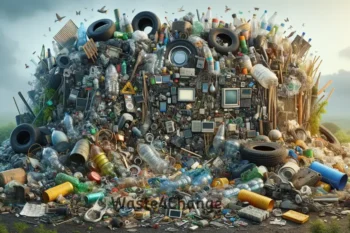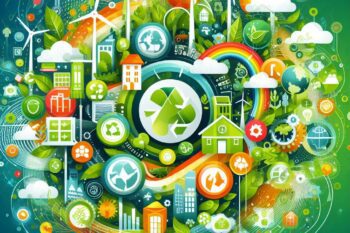A Look Back at the Implementation of ESG in Indonesia in 2023
The trend of implementing ESG in Indonesia and globally is currently showing an increase. Globally, the implementation of ESG investment managed to grow 79% in the third quarter of 2020 according to research from MSCI.
In Indonesia, the implementation of ESG has also shown an increase since the first ESG product appeared in the capital market in 2016 until this product continues to grow to 15 in 2021 with a value reaching IDR 3.45 trillion according to Bank Mandiri.

Even though it shows improvement, the implementation of ESG in Indonesia still faces many obstacles. One of the biggest obstacles experienced is the level of business actors’ understanding of ESG which is still low.
This is illustrated by the results of a survey conducted by The Indonesia Business Council for Sustainable Development (IBCSD) which states that 40% of companies in Indonesia still do not understand the importance of implementing ESG.
Apart from that, a different survey from IBCSD also stated that the ESG Index in Indonesia in 2021 was ranked 36th out of 47 world capital markets.
Even so, the implementation of ESG in Indonesia continues and in 2023 there will be several long-term ESG steps. What are they? let’s see the review!
ESG in the National Capital (IKN)
- Planting 10,000 trees
Planting 10,000 is categorized as environmental in ESG because it will have a good impact on the city environment.
The program initiated by the green movement (a collaboration between Katadata Green, Benih Baik, and Panggangin), aims to turn 166,000 ha or 65% of the IKN area into a protected forest area.
According to kontan.co.id, this program will be equipped with artificial intelligence (AI) and internet of things (IoT) which will be used to monitor the condition of the trees and the environmental impact of the planting.
- Smart bin and material recovery facility (Governance)
Smart bin is included in the governance category in ESG because it influences the formation of IKN city planning. This innovation will later be implemented to streamline the flow of waste transportation around IKN.
This technology will detect which trash cans are full so that waste trucks don’t have to go around looking for full trash bins.
Previously, the waste to be disposed of was first separated according to its type using a material recovery facility.
- TPST and TPA (Environment)
The TPST (Integrated Waste Processing Site) and TPA (Final Processing Site) projects at this point fall into the Environment category in ESG because they will have a positive impact on the environment around IKN.
These two waste management facilities will be used at IKN with the aim of managing 100% of the waste produced.
Reporting from ANTARA News, city waste will first go through a recycling process before ending up in the landfill. The recycling results are planned to be used to make new product materials.
This system will certainly reduce the amount of waste that ends up in the landfill so that it can extend the operational period of the landfill and reduce the negative impact on the environment.
This flow is in line with the Waste Credit program from Waste4Change to collect and recycle waste in a responsible way.
This collection process is carried out with recycling agents, stalls, waste banks, TPS3R (Reduce, Reuse, Recyle Waste Processing Site), as well as by transporting waste directly from the client’s location.
Find out the program details here!
Carbon market launch (Environment)
The launch of the carbon market on September 26 2023 by the President of the Republic of Indonesia, Joko Widodo, is included in the Environment category in ESG because it will reduce carbon emissions that pollute the air.
It is believed that the existence of this carbon market will be able to help Indonesia achieve its emissions reduction target, which according to The Jakarta Post will reach 29% by 2030.
Quoting from bions.id, currently there are no official regulations from the government to reduce carbon emissions from certain parties.
However, in 2025, the government plans to implement a carbon tax and introduce a cap, trade and tax scheme in the future.
According to Law No. 7 of 2021 concerning harmonization of tax regulations, the estimated carbon tax rate is IDR 30,000/tCO2e (equivalent to US$2/tCO2e) or lower than the average tax rate in other countries.
Call for collaboration to overcome climate change (Social)
Jokowi invited related parties to collaborate in realizing the energy transition as a form of preventing climate change.
This makes this point fall into the social category in ESG due to the initiation of social movements to have a positive impact on the environment.
Speaking in a public lecture at Stanford University, San Francisco, United States, on Wednesday, November 15 2023, Jokowi conveyed the importance of collaborating and forming strategic steps in dealing with climate change disasters.
“In facing the impact of climate change which is increasingly threatening today, collaboration is very important and concrete strategic steps are needed, without which it is impossible for us to guarantee sustainability and the only earth we love.” –
Joko Widodo (President of Indonesia)
Apart from that, Jokowi also encouraged the government to further intensify bioenergy production as a preventative measure for climate change disasters. According to him, the world is transitioning towards a green economy and all countries need to work together in this regard.



